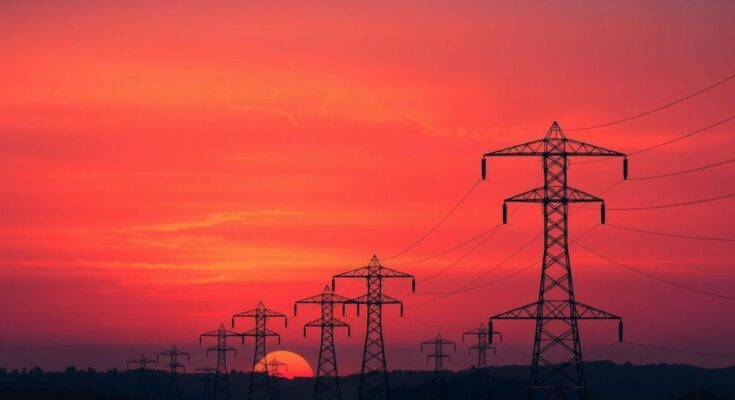The US has revoked Iraq’s waiver for Iranian electricity imports, aiming to strengthen its pressure on Tehran. Iraq relies on Iranian gas to cover electricity demands amidst shortages. Prime Minister al-Sudani plans energy independence by 2028 and is pursuing regional energy projects. This shift follows discussions between US Secretary of State Rubio and the Iraqi PM on Iran’s influence.
The United States has officially terminated Iraq’s waiver for purchasing electricity from Iran, according to a spokesperson from the State Department. This decision is part of Washington’s ongoing “maximum pressure” strategy against Tehran, ensuring that Iran is not granted any economic or financial relief. The spokesperson emphasized that the intention is to mitigate Iran’s nuclear threat, limit its ballistic missile program, and prevent its support for terrorist organizations.
Currently, Iraq’s electricity generation reaches approximately 27,000 megawatts, though it can decrease to as low as 17,000 megawatts at times, resulting in persistent energy shortages. The country’s demand for electricity is estimated at 40,000 megawatts for uninterrupted service, prompting Baghdad to depend on Iranian gas imports, which had previously been shielded from US sanctions through a waiver.
With the administration’s renewed commitment to strict economic measures against Iran, Iraq’s government has sought an extension of the waiver from the new administration. Prime Minister Mohammed Shia al-Sudani discussed this need in a recent interview, indicating the urgency of the situation.
To reduce Iraq’s dependency on Iranian energy, PM al-Sudani has proposed a plan aiming for energy independence by 2028. He noted the significance of maintaining the waiver during this transition period and highlighted ongoing energy interconnection projects with neighboring countries as part of a larger regional integration strategy.
This US decision comes after a conversation between US Secretary of State Marco Rubio and PM al-Sudani, where they discussed Iran’s regional influence. Rubio encouraged Iraq to pursue energy independence to enhance its autonomy in the region.
The United States has ended Iraq’s waiver for Iranian electricity imports as part of its maximum pressure strategy against Tehran. This decision reflects the urgent need for Iraq to achieve energy independence, given its chronic electricity shortages. Prime Minister al-Sudani has emphasized a goal of eliminating reliance on Iranian energy by 2028, while also implementing regional energy integration projects. Continued support during this transitional phase is crucial for Iraq’s energy strategy and autonomy.
Original Source: shafaq.com




